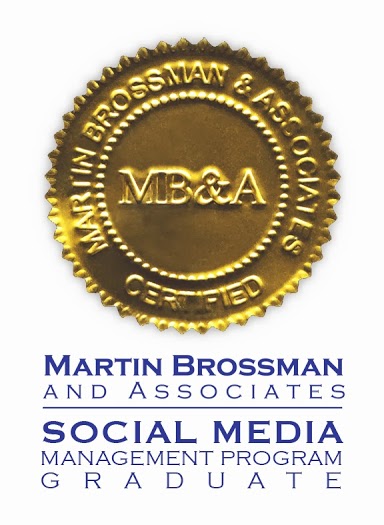Basic US Copyright Law
IANAL*
The basics parts of US copyright law that affect your actions on Pinterest.
- “In the public domain” means, “the creator has been dead for 70 years,” not, “I found it on the internet.”
- Any “original work of authorship” is copyrighted. The copyright is usually owned by creator. In some cases, the person who paid to have a work of authorship created owns the copyright, aka “work for hire.”
- Copyrights can be registered with the US Copyright office for $35 and, once registered, the owner acquires the ability to sue for damages.
- If your URL doesn’t end in *.edu, “fair use” does not apply to you.
- The Digital Millenium Copyright “Safe Harbor” provision applies to the host, not the user. In other words, ithat law protects host sites like Pinterest, but not you, the person who uploads copyrighted content to those sites.
For additional information, spend some time at the US Copyright Office’s website. It’s very user-friendly.
Applying Copyright law to your Pinning activity
Trace the source

Pinterest and Copyright, for Pinners
Pin from the original source, rather than repinning. When you trace to the original source of a pin, you can often get a sense of whether the creator has allowed, tacitly or explicitly, sharing and pinning.
- Because Flickr has an easy-to-use copyright and permission labeling system, you can be reasonably sure the photographer is comfortable sharing images with credit.
- When you trace the source to a websites with a “PinIt” and/or a “follow me on Pinterest” button, you can feel reasonably comfortable about pinning an image. The image creator is the owner of the content. Do not change the URL or modify the image and give as much credit to the site in the caption as you want to type.
If you don’t have time to trace a pin, “Like” it to save it until you can come research the original source of the image (using Google Image search).
If you find a site does not appear to support pinning, consider “Liking” the image to save it without it appearing on your boards. (Not clear if this would be considered a copyright violation that would charge to you.)
Pinning your own images
Pin images you created (as long as you’re not taking a picture of something that is itself under copyright protection, most often “art.”) The Pinterest app for your smart phone makes it easy to pin-on-the-run.
- If you paid a photographer to make the image (realtors!?!, interior designers with portfolio photography, brides), make decisions about who owns what and who can pin what when you sign the contract.
- If you are the photographer, discuss the Pinability of your images in your contracts.
Pinning with the PinIt bookmarklet
- Consider whether the website owner is likely to benefit from the Pin / additional traffic; consider where you are pinning the image (what type of board?). Paste the URL in the caption as well as in the “Link” field. Use a helpful and informative caption.
- If you have any doubts, email the website owner and ask for permission. Photographers and some designers have a mixed response to Pinterest. Some feel they will lose sales; others believe that additional traffic will bring them more business. It’s their call, not yours. Save the email response.
Stock Photo, National Geographic, and other blocked websites
Pinterest helps website owners who don’t support sharing to block pins from a site. Many of the stock photo websites installed this code, as did the National Geographic website.
Pinning when you have to do something devious to get an image from a blocked, unpinnable website is the same as shoplifting.
Some clients may be more aware of this application of copyright law than you are. Like grammar, getting it right is invisible and getting it wrong offends. (That is, a client who recognizes that you pinned a protected image is more likely to put you in the “shoplifter” bucket than a “clever person!” bucket.)
Researching images
Use “save image as” to save a copy of the image to your hard drive, then drag that image to the Google Image search box. Google will tell you where that image has been used.
Review all pins occasionally
When you get more familiar with Pinterest, review all your pins from time to time.
- I missed some curse words in URLs when I first pinned, and I have since deleted those pins.
- Beautiful, well-photographed images that are “uploaded by user” are suspicious.
- If you’re not sure about a link or a credit, delete the Pin. Something better will show up.
Non-participants
If you don’t want to play, put the “don’t pin from here” code into your website.
Search Pinterest regularly for your important images. Pinerest has a clearly defined system for removing pins that should not be on the site. Use Google image search to keep track of your own work—drag an image to the Google Image search bar, and Google will tell you what sites have used that image.)
Pinees
If you DO want to play in Pinterest: add the follow me and Pinit buttons to your website.
Pin your own images to your own boards as a starter. Although Pinterest claims to not be about self-promotion, it also wants to see user-created content. Distribute your images across different boards, depending on your subject matter.
Decide whether watermarks are worth the trouble: it depends on your industry and your skill at adding watermarks to your images. (Photoshop can add watermarks, as will PicMonkey.)
Summary
Pinterest is a fabulous tool for sharing images with your clients, your friends, and friends and clients you haven’t met yet. Share your own images, and images that have been clearly “permissioned,” and you’ll be fine.
*Notes:
I am not a lawyer, and this is not legal advice.
I am not a lawyer, but I have hired them, and I know this: Intellectual Property (IP) Lawyers have a different focus than general, business, and /or family practice lawyers. If you have questions, hire a lawyer who specializes in IP law. IP Lawyers cluster around research centers and universities.
I am not a lawyer, and neither is Jonathan Bailey, but he is a journalist with a lot of experience in understanding how the internet and basic copyright law intersect. If you have questions beyond what this article covers, give him a shout.



Follow Us!